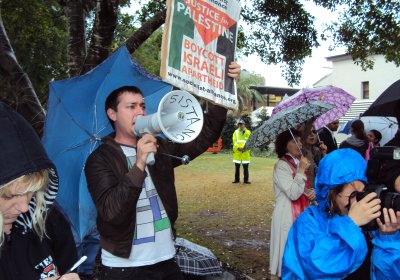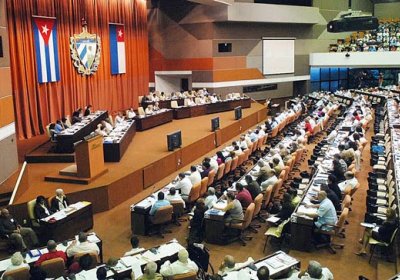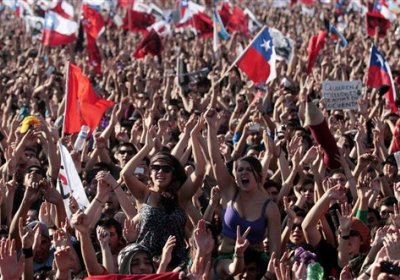Justice for Palestine Brisbane released the statement below on August 29.
* * *
Brisbane supporters of the boycott, sanctions and divestment campaign (BDS) have pledged to intensify their campaign following a successful protest on August 27. Despite the rain, fifty protesters took to the streets to highlight the links between the Max Brenner chocolate store and the Israeli military occupation of Palestine.
893
Communities and local conservation groups from across NSW will celebrate the beauty and diversity of our native plants and wildlife and the environment at the Festival of Nature, a calendar of more than 90 nature-based events across NSW.
During biodiversity month in September, the Nature Conservation Council of NSW and its member groups will inspire a better connection with nature with bushwalks, birdwatching, photo competitions, wildflower walks, talks, and guided sculpture or art installation.
With less than a month until the 2nd Climate Change/Social Change conference, around the theme “World at a Crossroads”, in Melbourne, the list of confirmed speakers and sponsors is growing.
The conference is being organised by Green Left Weekly, Socialist Alliance and Resistance at the University of Melbourne over September 30-October 3. It aims to promote recognition that in order to solve the global climate crisis, radical social change is required.
On August 23, military chief Henry Rangel Silva revealed that over 40,000 hectares of land had been recovered and 15,000 people freed from conditions of “slavery” as part of Plan Caura, the Venezuelan government’s anti-illegal mining project.
Silva, chief of Venezuela’s Operational Strategic Command, is head of the anti-illegal mining initiative, formed in 2010 when the Bolivarian Armed Forces (FANB) were given the task of stemming Venezuela’s growing problem with illegal mining activities in the south eastern part of Bolivar state.
Britain: Living standards deteriorating
“Almost 40% of households saw their finances deteriorate between July and August, according to a survey by the financial information company, Markit.
“The study, of 1,500 adults, showed finances worsened at their fastest pace since February 2009, in the middle of the last recession.
“Many reported a rise in debt levels and a fall in savings and income.
“Just under 6% of households reported an improvement in their financial situation.
Dick Smith’s Population Crisis: The Dangers of Unsustainable Growth for Australia
Allen & Unwin, Sydney
2011, 228 pages
Those who say today’s big social and ecological problems stem from there being too many people on the planet face a special difficulty.
As the Australian ecologist Alan Roberts once said, populationist authors need “to persuade their readers that the main thing wrong with the world was the existence of those readers themselves”.
Another Arab dictator is gone.
But the nature of the fall of Muammar Gaddafi raises questions about the nature of the new regime that will emerge, and to what extent it will truly reflect the interests of Libya's people.
On August 21, forces of the National Transitional Council (NTC) entered Tripoli and claimed victory against the forces that remained loyal to Gaddafi.
A week later, loyalist forces continued to hold out in the dictator's home town, Sirte, and in pockets around Tripoli. But Gaddafi's 42-year reign is over.
The new government of Papua New Guinea, led by prime minister Peter O'Neill, has announced plans to revert ownership of minerals and resources to traditional landowners.
Mining minister Byron Chan said in a speech on August 11 the government would seek to give traditional owners legal ownership of resources under the land and sea.
Currently, the PNG government owns anything more than six feet under the surface.
Chan also promised an urgent review of mining and environmental laws, especially those involving deep sea mining.
With some exceptions, the powerful international media has ignored a recent Cuban parliamentary bill that would deepen democracy on the island.
The reason is obvious: the news is not convenient.
The initiative is made within socialist institutions, not in terms of the “transition” that is highly anticipated and promoted by certain hegemonic interests in this world.
The idea is to give the green light to an experiment in the new provinces of Mayabeque and Artemisa.
If it bears fruit, it would be extended to the whole country through constitutional reform.
There were amazing scenes in Chile on August 21 when 1 million people marched in Santiago chanting: “The people united will never be defeated!”
These were awe-inspiring scenes of mass mobilisation.
The acute trigger is the privatisation of the education system. The underlying trigger is relentless and ever widening social and financial inequality.
If the people know about neoliberal policies, it is the Chileans.
Furious emerging farmers in the Kareeberg municipality in South Africa’s Northern Cape Province have decided to stop paying rent for the municipal-owned land they are farming.
These farmers have been robbed, prevented access to and ownership of land by colonial conquest, segregation and apartheid.
Now, South Africa’s protection of capitalist property and its neoliberal state policies are keeping them landless.
The ongoing student protests in Chile are an unwavering accomplishment aimed at combating the social injustice infecting the country's education system. What started out as a series of peaceful protests in May has become a movement that unites students, artists and much of the general population.
- Page 1
- Next page






